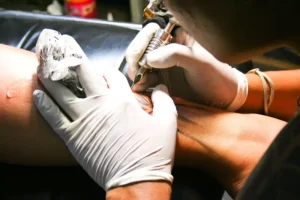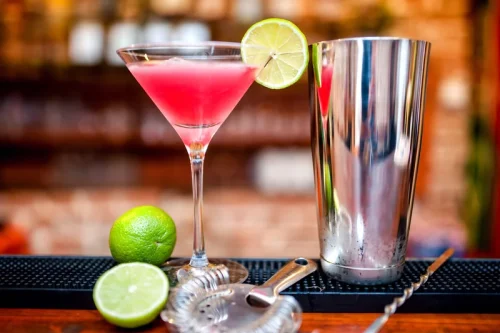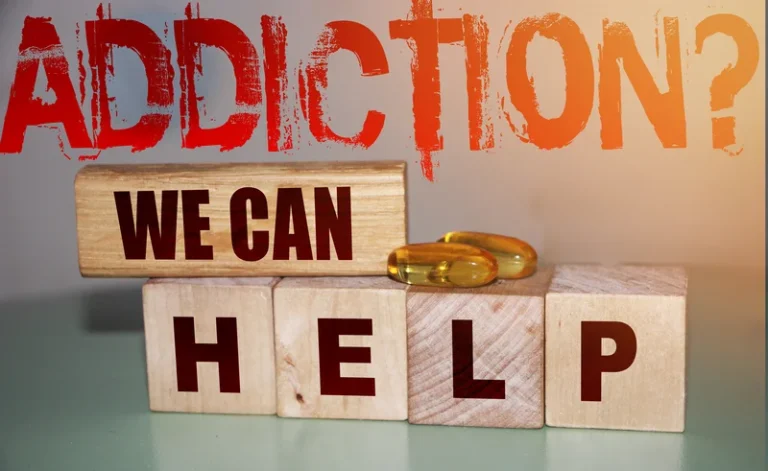
From month-long sobriety challenges to the Sober Curious movement, more and more people are taking a closer look at the role alcohol plays in their lives. Emotionally, you may feel some anxiety or sadness about ending a chapter of your life and nervousness about the future. “You may learn things about yourself and about your relationship to this substance that you never even thought about,” he adds. Excessive drinking can weaken the immune system, increasing the body’s likelihood of developing an infection. Diseases like pneumonia and tuberculosis are more frequent in individuals who chronically drink. Alcohol withdrawal can cause many symptoms, some of which can be fatal.
Identifying a Standard Drink
Traditional rehab gets you out of your home environment, which gives you a head start on learning new routines. For those who quit cold turkey (i.e., abruptly), some medications can help manage withdrawal symptoms. However, none of these treatments actually cure withdrawal—you still essentially have to wait it out. And some of these medications can be dangerous or addictive on their own.

Measure your drinks.
- If you answer “yes” to two to three questions, your symptoms align with mild AUD.
- If you’re interested in quitting your drinking habit, you may be concerned with the withdrawal experience.
- Little data is available about the safety and effectiveness of alcohol tapers.
Ask your doctor whether any medications may help in the process. Identify a family member or friend who you can call on to provide emotional support. Whether you’re sober curious, know for sure you’re ready to quit, or fall somewhere in between, Dr. Streem shares advice for how to stop drinking. If you’re living with alcohol use disorder (also known as alcoholism), you’ll likely benefit from additional medical interventions.
How To Make an Alcohol Tapering Schedule
- Heavy drinking can lead to a reduction in the sensitivity of your brain to the amount of GABA produced.
- Choosing to taper off alcohol is an admirable decision and a step in the right direction.
- You should not begin a tapering plan before talking to your doctor.
- The phrase cold turkey refers to abruptly stopping drug or alcohol use.
- Work events, celebrations, family gatherings, and the like can all bring you into contact with people who don’t know you are sober yet, and who may pressure you to drink.
- Withdrawal symptoms are a sign that the taper is going too fast.
More concerning is the prevalence of binge drinking and heavy alcohol use. In the same year, 28.3 million people had an alcohol use disorder (AUD). Your insurance plan may cover some or all of the cost of medical detox for drugs and alcohol.
How well Ativan works
- However, it can be challenging to stick with a long-term tapering schedule, so you have to find the right balance for you.
- Most people experience the most severe symptoms from about 36–72 hours after stopping drinking.
- Anyone wanting to stop using alcohol may benefit from tapering if they first consult with their doctor to ensure they are tapering safely.
- With that being said, tapering is a lot safer than going cold turkey.
- She incorporates cultural relevance and non-traditional interventions and strategies to strengthen her clients’ steps towards goals of behavioral, emotional, social and mental wellness.
Tapering alcohol may be uncomfortable, and there may be subconscious triggers that stimulate the desire to drink alcohol. Stress is a common trigger that makes it hard to modify your alcohol intake. Finding a different, more healthy way to unload stress may go a long way in helping someone succeed in cutting back on their alcohol use. If you’re living with alcohol use disorder, treatment at a medical rehabilitation facility is your best option. Through therapy, support groups and medication, you’ll be supported on your path to recovery. Contact emergency health services if you or someone you know experiences more than one symptom of severe alcohol withdrawal.

It’s often easier to turn down a drink when you don’t have to do it alone. Becoming more aware of your alcohol triggers and reasons for drinking can help you plan ways to help manage the urge to drink. Knowing why you drink is essential, says Cyndi Turner, LCSW, LSATP, MAC, a Virginia therapist specializing in addiction treatment and alcohol moderation. All the same, “a quick drink” often turns into three or four drinks. When you’re having a good time, you find it hard to stop, especially in the company of friends having the same amount.
Whether you feel like you drink too much alcohol, or you have an alcohol abuse issue, quitting drinking cold turkey can be dangerous. Knowing how to safely taper off alcohol can make all the difference in how successful you are in quitting drinking. As many as 71% of people who go through alcohol detox experience symptoms of alcohol withdrawal. If you drink alcohol and are thinking about quitting, it is important to make sure you do so safely. One potential way to quit drinking is through tapering, which involves slowly reducing your alcohol intake over time.
Find an accountability partner or someone you can call to keep you on track when you want to drink. Build a network of people you can go to when you need help, join a support group or see a therapist. To create an effective taper, you must know how much you drink daily on average. It can be easy to underestimate how much you drink, and being as accurate as possible is important. As you prepare to wean off alcohol, consider taking the following steps ahead of time to have a clear path to success. “The role of GABAA receptors in mediating the effects of alcohol in the central nervous system.” Journal of Psychiatry & Neuroscience, July 28, 2003.

More on Substance Abuse and Addiction
If it’s too hard to control how much you drink each day, weaning might not be the right strategy. That said, there are now several medications that can help reduce your cravings and make weaning off alcohol easier. Further, the severity of withdrawal symptoms can cause a person to resort back to drinking alcohol to relieve any symptoms. However, doing so without the guidance of a physician, can complicate tapering and ultimately delay when, if ever, sobriety is reached. Tapering off alcohol is the act of slowly reducing alcohol intake until a person becomes completely abstinent. If you are tapering off of alcohol, the time it takes depends entirely on how long the taper is and how well you adhere to it.

Trying Non-Alcoholic Drinks
Regardless, The initial detoxification process may take several days. When you quit alcohol cold turkey, you quit drinking completely and suddenly. Early symptoms of alcohol withdrawal usually start about six hours after the last drink. Early symptoms include headache, how to taper off alcohol sweating, tremors, vomiting and difficulty concentrating. The main downside of tapering off is that it requires discipline. You’ll need to stick with gradual reduction every day and not revert to previous levels of consumption, otherwise it won’t work.
